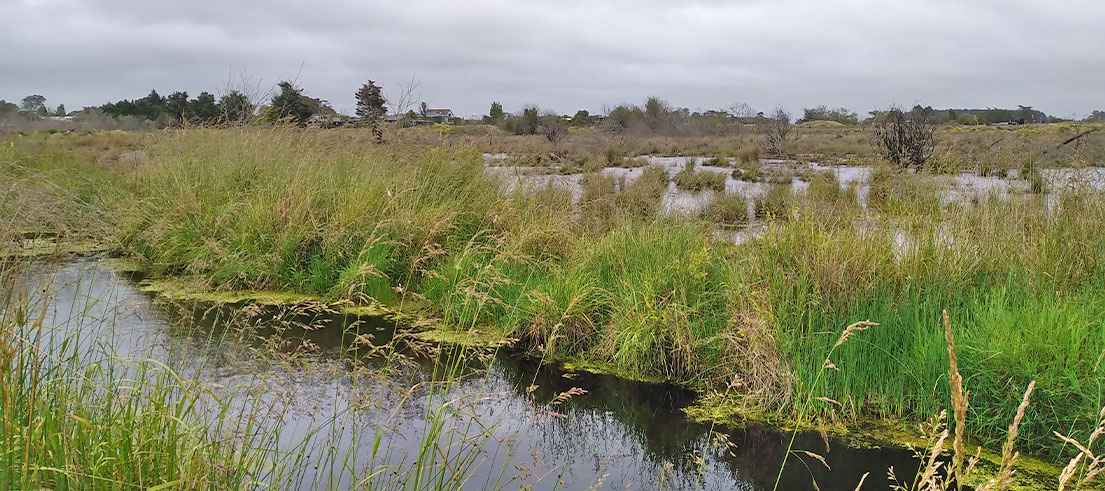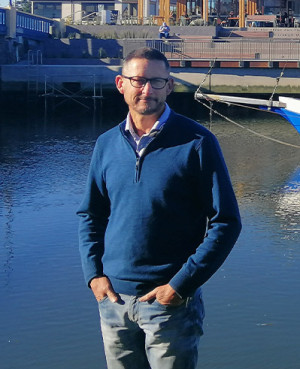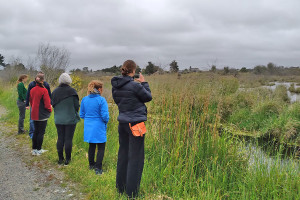
Waimakariri Water Zone Committee’s final field trip and plans for 2023

Waimakariri Water Zone Committee chair Michael Blackwell
Waimakariri Water Zone Committee chair Michael Blackwell talks about the committee’s recent visit to Tūhaitara coastal park, why nitrates are important and the committee’s plans for 2023.
We were lucky enough to have Te Kōhaka o Tūhaitara Trust general manager Greg Byrnes show us around Tūhaitara Coastal Park recently.
We started at the Pegasus end of the park and drove through to the Pines Beach side.
Fire damage up-close
The tour provided the opportunity to talk about the wetlands in the park and how they interact, as well as what impact a potential saline intrusion through climate change would have on this area over the next 50 to 100 years.
The visit also gave us a chance to see recent fire damage to the site. 200-hectares of the 750-hectare park were affected.
What was impressive was to see how some bracken had already grown up to 18-inches high since the November 2022 fire. This will provide good ground cover once fully grown, and once the site has been cleared, it’s hoped the space will encourage the growth of dormant indigenous seeds to sprout again.

Committee on their visit to the coastal park
Committee’s commitment to help
The committee has had a long connection with the park, first supporting mahi/work 10 years ago by helping to fund initial work for Tūtaepatu Lagoon, which is near Woodend.
We have always believed quite strongly in the vision of the coastal park as it aligns closely with our key principles of freshwater improvement, biodiversity, recreation and community.
Another interesting thing we learned during our tour of the park was about how some small local businesses have been getting involved by donating a couple hundred trees a year to the park, to help offset the environmental footprint their businesses are making.
Nitrates and why they must be reduced
A separate event of note was the ‘why nitrates are important to us’ field day. I was invited to speak at the beginning of the event, when the group of Environment Canterbury councillors and staff visited Silverstream Reserve at Clarkville.
The chair and deputy of Environment Canterbury also spoke and opened it up for questions. Discussions were held about the implementation of the new freshwater regulations ‘Te mana o te Wai’, as well as about Plan Change 7 and what it will mean for our local communities.
Following that, the group continued their tour of the area - ending it with a stop at Cam Henderson’s property in Oxford.
Cam is a former member of the committee and has some great knowledge and thoughts around Plan Change 7 and the importance of our waterways, which he was able to share with the group. He showed some practical samples of the excellent work many farmers were already taking to reduce nitrates.
Future planning
One task the committee will set about doing early next year is deciding how to allocate our Action Plan funding. Each year we receive $50,000 to recommend how it can be used to support our Action Plan outcomes in the Waimakariri zone.
There’s plenty of mahi/work taking place across the district and we’re looking forward to seeing what we can support.
Ngā mihi, Michael.
